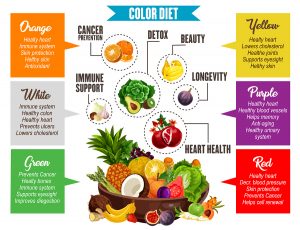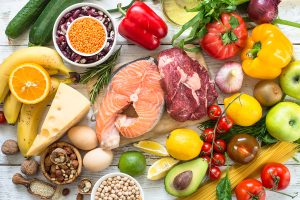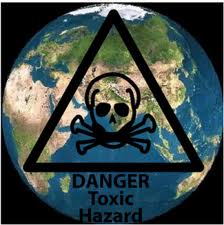Cancer is the second leading cause of death, that’s why it is important to learn about the best ways to prevent cancer. Generally speaking you want to remove cancer-producing substances (carcinogens) from your diet. But diet is only part of your lifestyle that can contribute to cancer. I shall list some of the more important dietary factors below and briefly touch on important other factors.
Avoid burning your meat
When you use the BBQ, you should avoid burning your meat. Even though the marks of “charring” are considered desirable on meat from the grill, this is really burnt! As a matter of fact it is a lot better to use a slow cooker at low heat and simply cook your food longer. This way you don’t create carcinogens. Avoiding to burn your meat is particularly important for the red meats.
Sugar and an overabundance of starchy foods can cause cancer
You never thought that sugar and an overabundance of starchy foods could cause cancer, but they do. The reason is that the metabolism of cancer cells is using 10- to 12-times more sugar than the metabolism of normal cells. The worst thing a cancer patient can do is to over-consume sugar. Replace sugar by stevia, which is a harmless, plant-based sweetener and does not lead to an insulin reaction. Avoid all other sugar substitutes, as there are other heath problems with most of them.
Avoid phthalates
Those who have a craving for macaroni and cheese are out of luck. This food contains phthalates that are part of the ingredients of almost every sample of cheese powder used to manufacture macaroni and cheese. Phthalates can cause infertility and breast cancer. So you must definitely avoid macaroni and cheese, at least the stuff from the box. Prepare your own!
A high fat diet
What does a high fat diet do? It increases the risk for breast cancer. But it can also increase colorectal cancer risk. Limit your fat intake to about 10% of saturated fat. That is the recommendation of the FDA. Increase your consumption of fish and seafood. Only one proviso: predator fish like shark, marlin, tilefish, swordfish and grouper are high in mercury. But wild salmon, sardines and oysters are low in mercury. You can also enjoy shrimps and prawns.
Take high dose vitamin D3 supplements
High dose vitamin D3 supplements help you to avoid cancer. There are strong statistics showing that vitamin D3 is a powerful tool to lower your risk of developing cancer. Your family doctor should take a blood test called 25-hydroxy vitamin D level to make sure that you absorb enough vitamin D3. There are slow and fast absorbers and the only thing to know how well your gut absorbs vitamin D3 is in doing this blood test.
Also, curcumin (turmeric) 500 mg once per day is good for cancer prevention.
Take enough fiber
Make sure you take enough fiber, which does not only reduce colorectal cancer, but also many other cancers. When you eat plant-based food, you automatically get fiber in it. North Americans are not consuming enough fiber in their diet.
Avoid processed meat and too much red meat consumption
Processed meat and red meat cause cancer.
Beef, lamb and pork seem to contribute to causing cancer according to the WHO. Use common sense and eat fish, chicken and turkey. Reduce your beef consumption. My grandmother served beef as a Sunday dish.The rest of the week simple, plant-based foods appeared on the table. Ask your grandmother, what she used to cook. Or ask your mother what she ate as a child.
Eat moderate amounts of fruit and vegetables
The claim that fruit and vegetables would protect you from cancer is not as solid as researchers thought of in the past. Newer research has shown that a basic intake of fruit and vegetables is needed for nutrients, but consuming more than that will NOT protect you from cancer.
This link explains that eating more vegetables or fruit beyond a certain point will not do harm, but will not protect you further from cancer.
Drink green tea or black tea
If you like tea, drink green tea or black tea. Sweeten it with stevia, but not with sugar. Tea has been shown to have cancer prevention properties.
Avoid alcohol consumption to prevent cancer.
Coffee is a healthy drink and it has mild anti-cancer effects as well. It does not matter whether you drink it caffeinated or decaffeinated.
Other lifestyle issues
Quit smoking
If you are still smoking, quit smoking! Smoking is by and large the biggest risk for developing lung cancer, throat cancer, esophageal cancer and pancreatic cancer.
Watch your calorie intake
Eat smaller meals more often. This way the production of your digestive juices will consume some calories. In addition your taste buds are satisfied, so your hunger for food is more controlled. The end result is that you will not gain weight.
Prevent obesity and type 2 diabetes
This will help prevent obesity and type 2 diabetes, both of which are established risk factors to develop cancer. Here is a review that shows you, which cancer types are caused by obesity. With regard to diabetes, there is a strong association to developing liver cancer, pancreatic cancer and endometrial cancer (=uterine cancer). There is a lesser risk (only 1.2 to 1.5-fold) to develop cancer of the colon and rectum, breast cancer and bladder cancer.
Pollution
Poor air quality with pollution can also be a factor in causing cancer. Pollution does not stay local, but travels through the stratosphere around the globe. The result is that now 10 to 15% of lung cancer in the US occurs in patients who never smoked. This translates into 16,000 to 24,000 deaths annually of never-smokers in the US. In certain cities such as Beijing lung cancer rates have doubled in 9 years between 2002 and 2011. Lung cancer in non-smokers can be caused from exposure to radon, to second-hand tobacco smoke, and other indoor air pollutants.
Bioidentical hormone replacement
When males do not replace missing testosterone in andropause they are much more prone to develop prostate cancer. Similarly, when women are menopausal and do not get progesterone supplementation, they develop a higher amount of breast cancer due to estrogen dominance. It follows from this that bioidentical hormone replacement in menopause and andropause will help to prevent prostate cancer and breast cancer.
Conclusion
There is strong evidence that certain foods can cause cancer. Other foods including supplements like curcumin and vitamin D3 can help prevent cancer. Basically, you want to avoid all that is known to cause cancer and eat more of the healthy foods that do not cause cancer. This will help to decline your cancer risk. I suggest that in addition you should quit smoking, avoid pollution as much as possible, reduce excessive alcohol intake and watch your calorie intake. By doing this you prevent obesity and type 2 diabetes, and you will move into the low-risk cancer group. We all need to work on this on an ongoing basis.
Practical hints regarding the best ways to prevent cancer
The best ways to prevent cancer is to avoid processed red meat and all other processed foods. Eat more vegetables, fruit, wild salmon and other seafood. Don’t eat red meat more often than once a week and make it red meat from grass fed animals. In addition exercise regularly, get enough sleep and practice some form of relaxation (yoga, Tai Chi, self-hypnosis etc.). This lifestyle will not only prevent heart attacks and strokes, but also the majority of cancers.
Previously published here.










